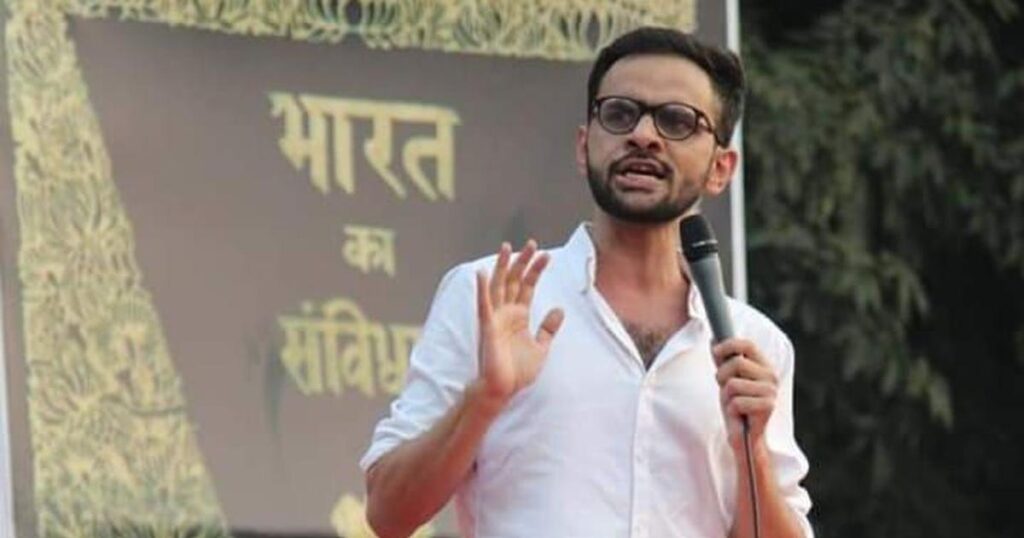
In a case related to the Delhi riots last year, activist and former student leader Umar Khalid was granted bail by a Delhi court today. The court has ordered him to install the Aarogya Setu on his phone before leaving jail, at a time when Covid cases are on the rise.
In October, the former JNU student was arrested in connection with violence in the Khajuri Khas area of northeast Delhi during clashes over the Citizenship Amendment Act (CAA).
The court stated that Umar Khalid “cannot be imprisoned indefinitely simply because other members of the mob must be identified and arrested in the matter.”
Additional session court Judge Vinod Yadav issued bail to Khalid who was arrested in February 2020 in a case linked to the riots in Khajuri Khas. The court said that a witness “not appealing to the senses” blew the whistle of a criminal plot against Khalid.
Senior lawyer Trideep Pais, appearing for Khalid, pleaded in court that, on account of “political Vendetta to silence the opposition, he had been wrongly involved with the matter by the investigative body.”
Khalid is still in Jail under UAPA
But Khalid would remain in jail as bail in the UAPA case in connection with the Delhi riots is not yet granted.
The Court stated: “It is important, no matter how it may be, to remember that, in FIR No.59/2020 (main case UAPA), the testimony of the prosecution witness, in this case, is also investigated by Delhi Police Special Cell. In the said situation on 21.05.2020 a declaration was registered in Section 161 CrPC, on a date on which he didn’t pronounce a single word against the claimant, “criminal conspiracy,” and suddenly he bled the trumpet of the “criminal plot” against the applicant in his statement in accordance with Section 161 of the CrPC in the matter on 27.09.2020. The senses are not appealing to this prima facie.”
The Court also said that this declaration of the witness “only talks about some meetings between the claimant, co-accused Tahir Hussain and Khalid Saifi on 08.01.2020, but does not reveal the same on the subject.”
The Court stated that Khalid “is not visible on the incident scene on any CCTV footage/viral video (s). Either an impartial public witness or any police witness who is present at the crime site on the day of the event does not identify the claimant. Even the applicant’s cell telephone CDR location on the incident scene was not identified.”



